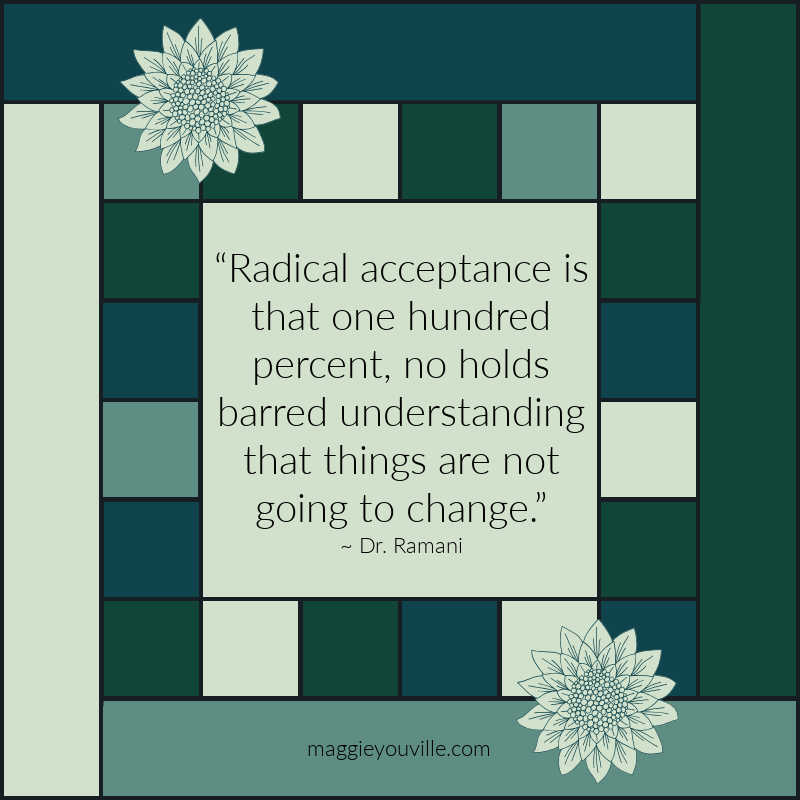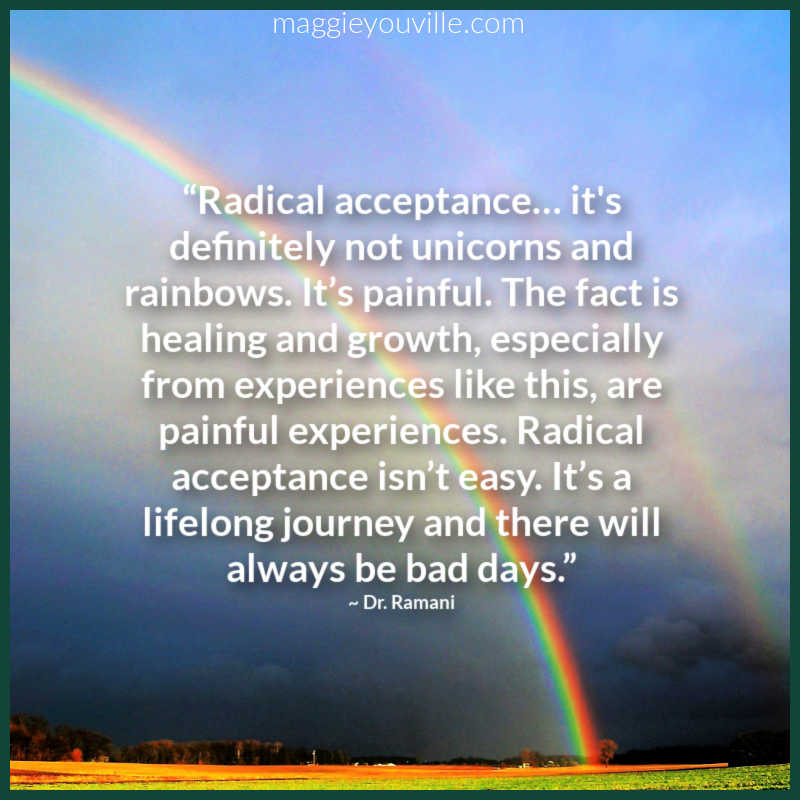As the two-year anniversary of my separation from my abuser approached, I began to feel hopeful. Our lives were falling into a new status quo. I had created a good home for my children and they were settled in their schools. Their dad and I had a parenting schedule that, while not perfect, was working and we were all used to the routine. Surely the stress and tension of the past two years would soon be just a memory as we moved forward into this new life.
All over social media, people were choosing their word for the year. Many of the Catholic accounts I followed on Instagram were offering tips for praying about your word of the year or choosing a word of the year from the Bible or a particular virtue. I scrolled past most of these posts, as this wasn’t something I’d ever done. One day, as I was reading another influencer share her word of the year, a word popped into my head: THRIVE.
It felt right. After so many difficult years of abuse, and more years of post-separation abuse, this would be my year to THRIVE. I was getting out of survival mode and I could finally do more. I could chase my dreams and be the woman God had created me to be.
And then my life seemed to explode. I had to take my ex-husband to court over a disagreement regarding our children. He retaliated by booking four other hearings against me. My lawyer and I felt confident we’d win several of these hearings, but we didn’t. I was devastated, feeling unheard and unseen by the judge and struggling to pay more legal fees. I lay in my bed one night thinking that instead of protecting my children, I was making life worse for them because their dad hated me so much, and they’d be better off without me.
In the midst of that darkness, my word of the year popped into my head. THRIVE. This wasn’t thriving. This was struggling, falling, breaking, crying, hurting. And then I wondered what I’d meant by THRIVE. What exactly did that word mean to me?
How do I thrive?
I moved to my desk and pulled out my journal and began to doodle. I wrote THRIVE in huge letters across the centre of the page. Then, as I stared at that word, I began to write other words around it. Words that represented the life I wanted for myself and my children. My values. My passions. My dreams. I found some stickers that spoke to me and added them to my doodles.

As I looked at the words filling my page, a realization hit me. All of the things I’d written down were things my ex-husband could not take from me. Sure, there were many things in my life he could control, such as what days I had my children with me. But I did have my children with me. I had friends. I had time to work and take care of myself while my kids were with their dad. I had my family back again after all his attempts to isolate me from them. And I had my faith.
I took a deep breath. I could thrive this year, no matter what he threw at me. I could be myself. I could be present for my children when they were with me and I could chase my dreams when they were not.
I let that breath out and pictured releasing all the things I couldn’t control. I’d been looking at what I couldn’t do, instead of what I could do.
Practice Radical Acceptance
I was first introduced to the term “radical acceptance” by Tina Swithin from One Mom’s Battle. In her newsletters, she frequently shares moments when she had to practice radical acceptance in her fight to protect her daughters against their sociopathic father.
Dr. Ramani, a licensed clinical psychologist, says, “Radical acceptance sucks. It may be the answer to a lot, but it sucks. You know why? Because it’s the end of the road. It’s the end of hope. It’s the end of the idea that today it’s going to be better. This year it’s going to be better. … Nope. Radical acceptance pulls the plug on hope. It’s the moment when you recognize it will not change. The situation will not change. This person is not going to change.”
I had spent years hoping my abusive husband would change. I invested in marriage books, courses, retreats and more to figure out why my marriage was difficult and what would fix it. Even after our separation, I kept hoping that now, in the finality of the end of our relationship, he would see why I had left and learn how to co-parent our children with me. Hope springs eternal, we are told, but sometimes, that’s not a good thing.
I needed to stop hoping for change. I needed to accept that this was my life, my reality. I knew what my abuser was like and nothing I did, nothing the police or the courts or anyone else did, would ever change him.
Dr. Ramani states, “Radical acceptance is that one hundred percent, no holds barred understanding that things are not going to change.”

She goes on to explain why radical acceptance is hard and what it might look like. She says, “Radical acceptance means grieving hope. It means grieving the relationship. It might mean grieving a childhood, grieving a marriage, grieving a family, grieving a career. It means saying goodbye to these things that matter to you and having to see a painful situation clearly.”
This grief will likely come with many other uncomfortable feelings too, that you can’t deny anymore. Sometimes, these feelings are so uncomfortable you don’t want to deal with them, and you go back to hoping things will change. Looking back on my relationship, I can see I went through several stages of this–of trying to radically accept that I was being abused and needed to get out, and then again denying it and hiding from it.
Dr. Ramani doesn’t leave us there, though. “What’s the bright side of radical acceptance? Authenticity. Clarity. Honesty.” These are good feelings, but they are often interrupted or overcome by the negative feelings. You may have many good days of feeling strong and authentic and then something will trigger the old grief.
“Radical acceptance… it’s definitely not unicorns and rainbows. It’s painful. The fact is healing and growth, especially from experiences like this, are painful experiences. Radical acceptance isn’t easy. It’s a lifelong journey and there will always be bad days.” Yet not practicing radical acceptance means a life of disappointment, of denying your feelings, and still grieving for so many things.

Radical Acceptance in My Life
In the years since that night of doodling around THRIVE, of releasing what I couldn’t control and starting to radically accept my situation, I’ve had to practice this over and over and over again. It’s not a one-time decision that magically makes things better in my life. It’s a daily decision to accept my life as it is, to look realistically at what I can do and what I can’t, and to move forward.
I used to email my ex-husband about our children with a naive, hopeful attitude, and then be crushed when his response was aggressive and demanding. My divorce coach told me to think about how he’d respond even as I was drafting the email. With radical acceptance about who he is, I can craft an email knowing that he’ll respond negatively, and not be crushed when he does just that. (Sometimes I’m pleasantly surprised when he doesn’t respond negatively.)
Praying with Radical Acceptance
Practicing radical acceptance as a Catholic means trusting that God knows what is best for me. Many years ago, during another season of pain, a song on the radio caught my attention because it seemed to describe my situation perfectly:
I’m so confused
I know I heard you loud and clear
So, I followed through
Somehow I ended up here
I don’t wanna think
I may never understand
That my broken heart is a part of your plan
When I try to pray
All I’ve got is hurt and these four words
I waited to hear what those four words would be, what the answer to my hurt might me. And when Hillary Scott sang, “Thy will be done,” I crumpled into tears. Radical acceptance is praying with Jesus in the Garden of Gethsemane, “Father, if thou art willing, remove this cup from me; nevertheless not my will, but thine, be done” (Luke 22:42 RSV).
Over and over again, I’ve taken my pain and anger to God and then prayed, through tears, “Thy will be done.” Those are not easy words to say. I don’t understand why this would be God’s will for my life, but I give up my attempts to control and trust myself to his care.
Radical acceptance in faith doesn’t meet sitting around doing nothing, expecting God to rescue me. As one famous prayer says, “God grant me the serenity to accept the things I cannot change, courage to change the things I can, and wisdom to know the difference.” While I can accept (and release) the things I cannot change, I can also continue to fight for what’s best for my kids, to work on my own healing and growth, to build my relationships with God and my family and friends.
Jesus often spoke about peace. In John, he tells his disciples that hardship is coming, then adds, “I have said this to you, that in me you may have peace. In the world you have tribulation; but be of good cheer, I have overcome the world.” (John 16:33 RSV) Those of us in abusive relationships know that yes, we face tribulation here. And yet in Jesus, we can find peace. He also faced abuse and he offers us the assurance that he is with us, no matter how we are treated.
In another passage, Jesus tells us his disciples more clearly, “Peace I leave with you; my peace I give to you; not as the world gives do I give to you. Let not your hearts be troubled, neither let them be afraid.” (John 14:27 RSV) This peace doesn’t mean that everything will be hunky dory in our lives. Rather, it means that despite what is going on around us, we can rest in Jesus’ love and care for us.
So, dear friend, I urge you to practice radical acceptance. May peace be with you. Thrive.
Homework for You
Take some time to pray and think about radical acceptance in your life. If you are a writer or an artist, I encourage you to take a piece of paper and do what I did. Write a word in the middle of the page–maybe your name, maybe another word like THRIVE, DREAM, HOPE, LOVE, PEACE, or GROWTH. Think about who you are and what this word means to you, and jot down your ideas. You can add stickers, doodles, pictures. You may want to keep this in your journal, on your phone, or on your wall to remind you who you are or what this word means to you.
Leave a Reply